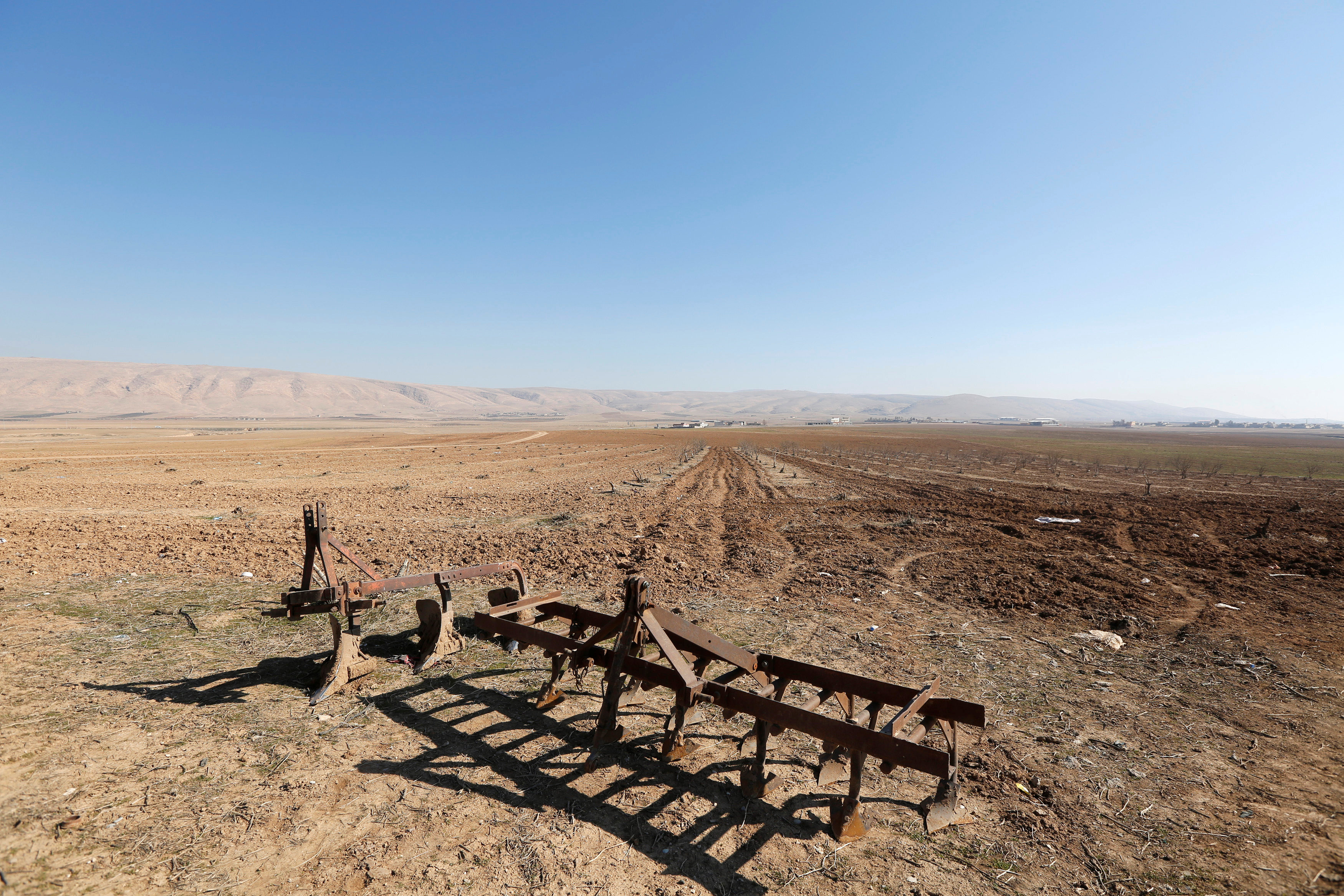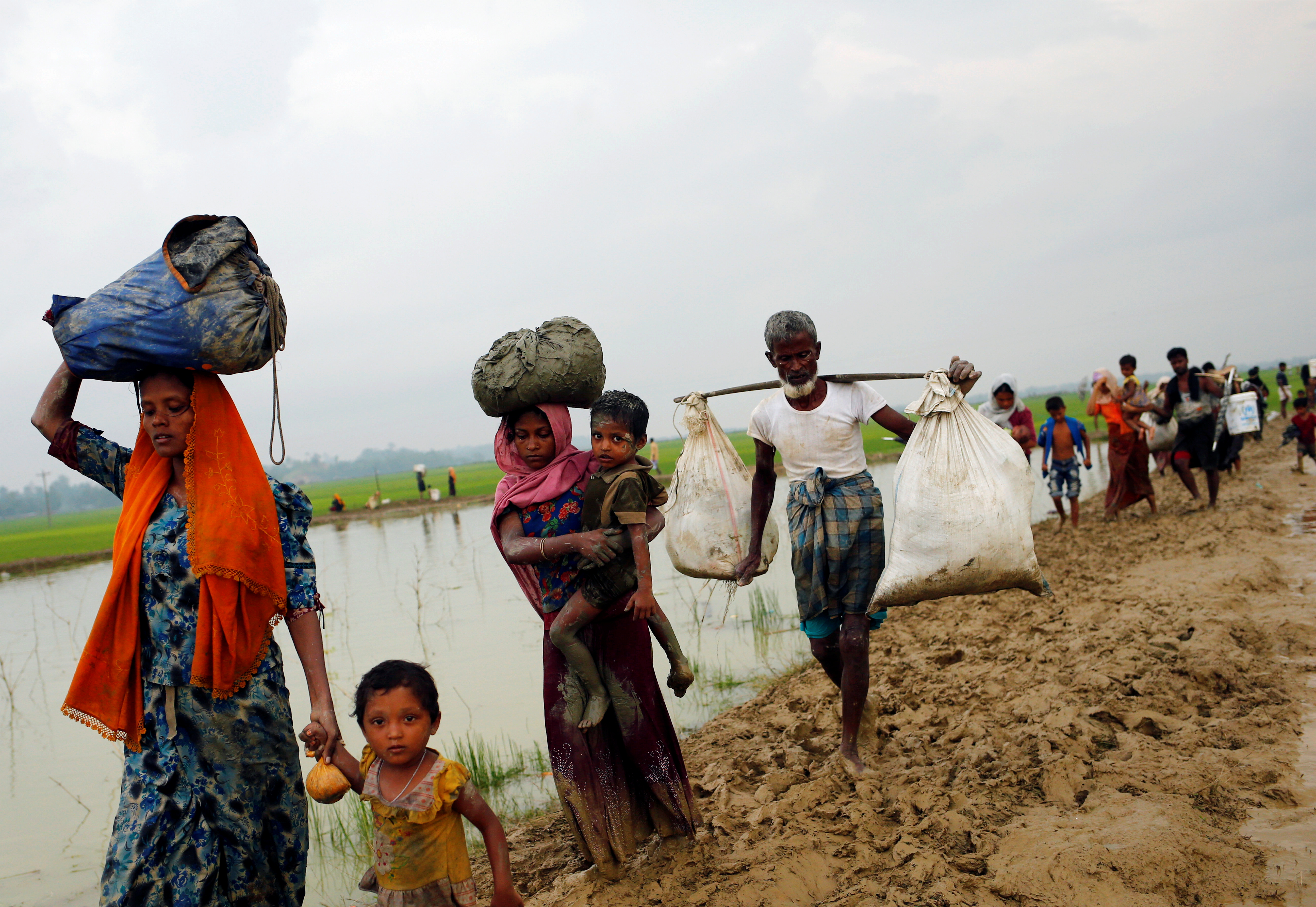
By Michael Georgy and Maha El Dahan
QARAQOSH, Iraq/ABU DHABI (Reuters) – Sami Yuhanna was making a decent living as a wheat farmer until a jihadist put a gun to his head and declared his land in Iraq’s Nineveh province the property of Islamic State.
An army offensive has cleared the militants from the eastern half of the provincial capital, Mosul, and nearby towns and villages like Qaraqosh, home to Yuhanna’s fields.
But the terror and mismanagement that characterized their two-year rule after seizing Iraq’s agriculture heartland has devastated farmers and exacerbated the country’s food security problem.
Yuhanna, who used to sell about 100 tonnes of wheat per year, now lives in a small trailer and drives a taxi in the Kurdish capital of Erbil to barely survive. He is still haunted by the day armed militants arrived.
“They just took over everything I owned,” he said.
Farmers fear the agriculture sector could take years to recover, with tractors missing, unexploded mines in the fields and farm compounds damaged by airstrikes on the militants, who sold commodities like wheat to finance their operations.
Nineveh was Iraq’s most productive farming region before the arrival of Islamic State, producing around 1.5 million tonnes of wheat a year, or about 21 percent of Iraq’s total wheat output, and 32 percent of barley.
An estimated 70 percent of farmers fled when Islamic State took over, and those who stayed — either to join the movement or out of fear — faced heavy taxation.
As a Christian, Yuhanna was particularly vulnerable to the Sunni extremists, who tried to build a self-sustaining caliphate and killed anyone opposed to their radical ideas.
“The people that turned on me we were all from this area. I knew every one of them. They joined Daesh,” said Yuhanna, using an acronym for the group.
Reuters was not able to obtain official figures for agricultural output during Islamic State rule because the government had no access to areas under jihadist control.
Haider al-Abbadi, head of the General Union of Farmers Cooperatives, told Reuters in a telephone interview that he estimated output fell to around 300,000 tonnes, based on accounts of how much of the grain farmers had sold.
“Islamic State used to surround farmers in general and prevent them from going out into the fields and farming their land because they were scared they would escape or that they would go and join the government forces,” Abbadi said.
“This season it will be difficult to see an improvement. The only hope is that the farmers might be able to market their produce to the government again. I don’t expect the wheat crop to be more than 500,000 tonnes this season.”
Fadel El Zubi, Iraq Representative for the U.N. Food and Agriculture Organization (FAO), agreed the outlook is dire.
“It is extremely important to support farmers as their situation in newly retaken areas is characterized by extreme difficulties that is disabling them to start planting for this season 2016-2017,” Zubi said in written answers to Reuters.
“Seeds, fertilizers, fuel, electricity, sustainable agricultural equipment, as well as irrigation channels and wells and other essential supplies, are not available to enable farmers to restore their usual farming.”
The militants seized 1.1 million tonnes of wheat that was in government silos, according to Zubi. In addition, about 40 percent of agricultural machinery was sold as parts or smuggled into neighboring countries to raise money for militant activities, Abbadi said.
FOOD SECURITY
Ensuring food security has consistently been one of the central government’s biggest — and most pressing — challenges.
Even late dictator Saddam Hussein was cautious when it came to food. A rationing program for flour, cooking oil, rice, sugar and baby milk formula, the Public Distribution System (PDS), was created in 1991 to combat UN-imposed economic sanctions.
Impoverished Iraqis continue to depend on the system, which has become corrupt and wasteful over the years as well as severely curtailed in conflict zones.
The FAO estimates there are around 2.4 million people in Iraq who do not have access to nutritious food that meets their dietary needs.
Islamic State set itself apart from militant groups like Al Qaeda by holding territory and attempting to create an administration that could deliver basic services in order to win public support. But the group failed in areas such as farming.
For one thing, the militants did not match government prices, farmers said. While the state used to pay double the market price for commodities such as wheat, for example, Islamic State paid below the global average.
“They were paying farmers around $200 a ton while the government used to pay up to $600 a ton,” Zubi said.
Ghanem Hussein used to work 100 donhums (250,000 square meters) of wheat and barley crops below mountain ranges. When the jihadists showed up, his planting shrunk to 10 donhums because he didn’t fully cooperate with them.
“They did not buy anything from us. I just grew enough to feed my animals. Total destruction,” said Hussein, throwing seeds by hand on a small plot of land around his house in the village of Omar Khabshi.
He now fears for the safety of his children because dogs that ate corpses left on roadsides by fighting are biting people in his village.
NO HOPE
Islamic State’s failure to meet the basic needs of Iraqis would likely undermine any bid to make a comeback in the country as it tries to recover from losses in Syria and Libya, farmers said.
But the government is not offering much hope either, they said, with most of its resources directed at driving the militants out of Mosul.
Farmer Abdel Hakim Ali, 45, used to sell 50-100 tonnes of wheat and barley annually to state-run silos before Islamic State arrived. He and other farmers have contacted the government to see if the old arrangements could be revived.

Parts of a bulldozer are seen at a farm in the town of Basheeqa, Iraq, February 8, 2017. REUTERS/Ahmed Saad
“They said to wait because the budget is weak,” said Ali. “The state is failing. This is our government. They said wait for God’s mercy.”
This is a familiar story to farmers. When Islamic State took over Mosul in June 2014, farmers in the region had still not received government payments for the wheat they had sold that year.
Kadhum al-Bahadli, the government’s advisor on agricultural affairs, said efforts were underway to pay and compensate farmers and offer loans for seeds despite low oil prices and deteriorating state finances.
“The government has already put plans to compensate Mosul farmers for the wheat delivered to silos before the occupation of Daesh. They should be patient as the process is complicated and needs more time.”
Aref Hassan, head of a farmers association in Basheeqa with 1,100 members, showed Reuters photographs of a town once surrounded by green fields that was reduced to rubble in the effort to dislodge jihadists.
Only a few families have returned.
Hassan walked through an olive grove, despairing at the sight of one tree after another burned by militants in an apparent bid to create smoke to evade airstrikes.
Reviving the grove could take a decade, he said. For now, there are more pressing concerns.
“There are still mines and improvised explosive devices on a lot of land so farmers can’t work,” he said.
“We hope that international organizations and demining organizations will clean up the farming areas. The farmer cannot go back to his land until these farms are cleared.”
(Additional reporting by Ahmed Rasheed in Baghdad; Editing by Sonya Hepinstall)




